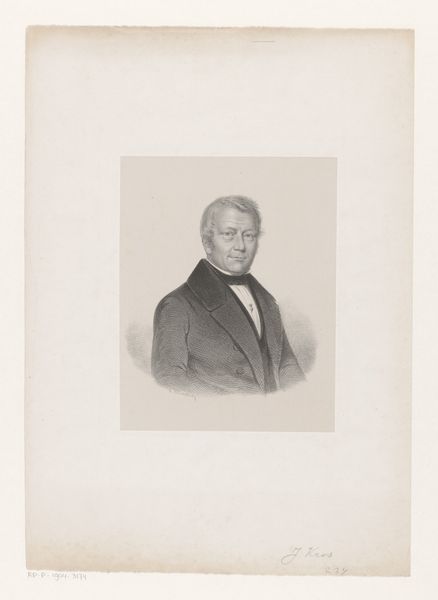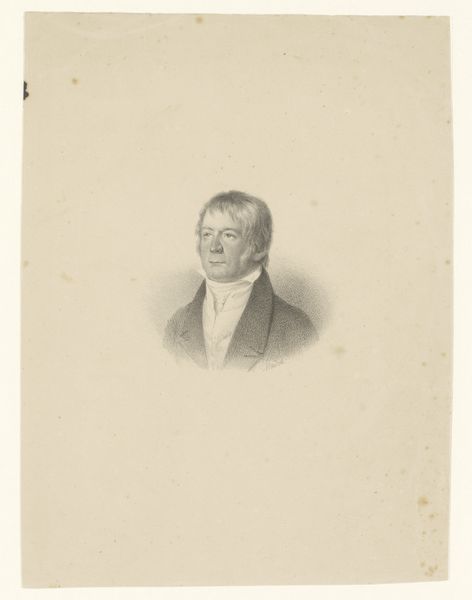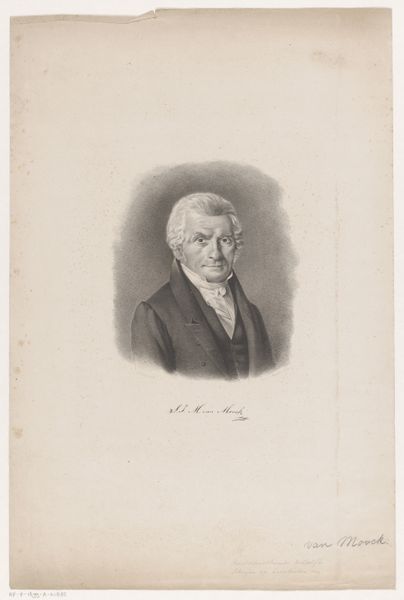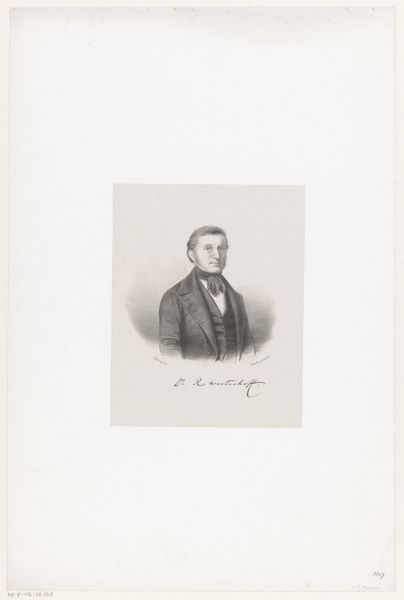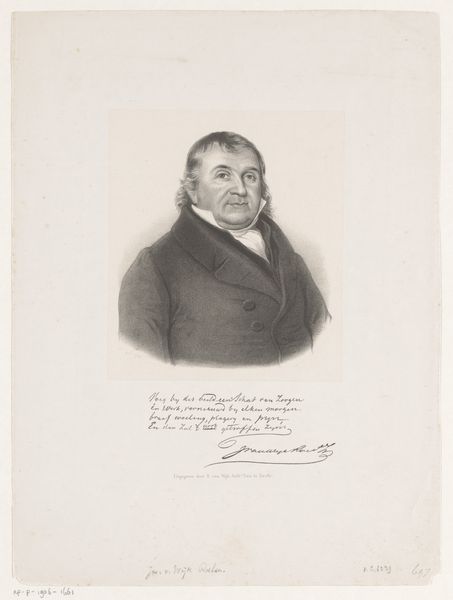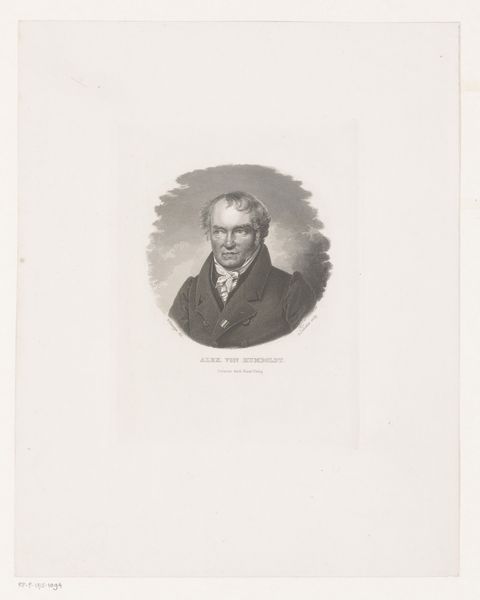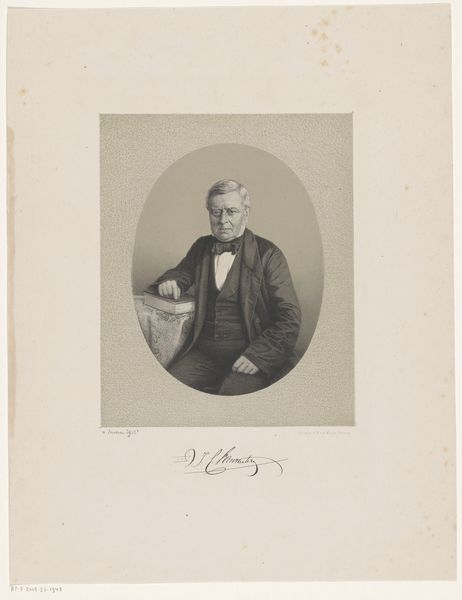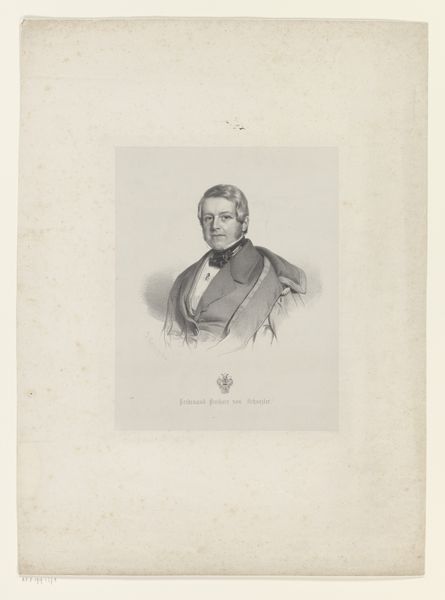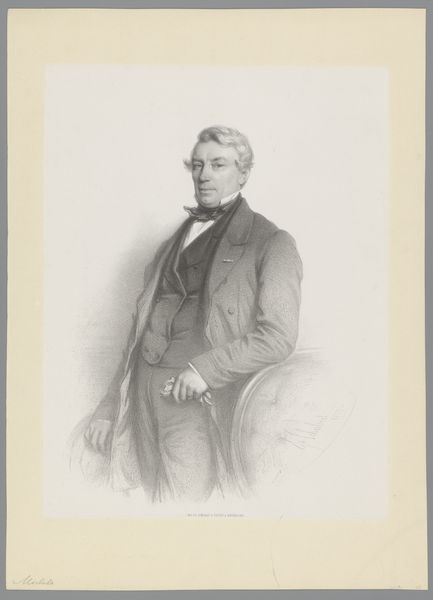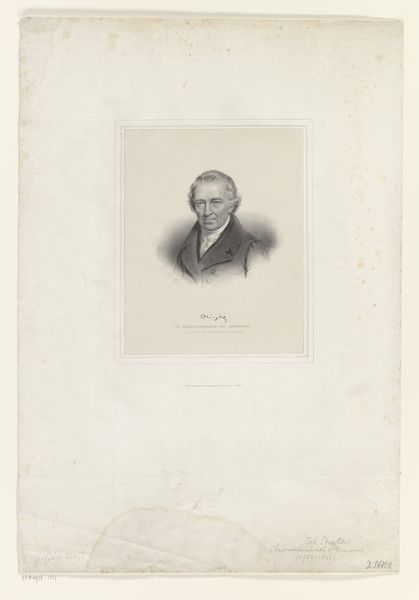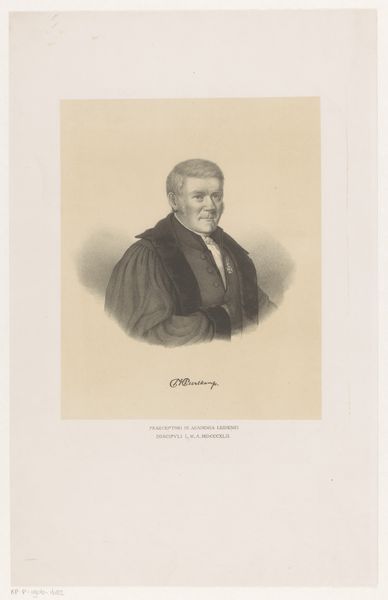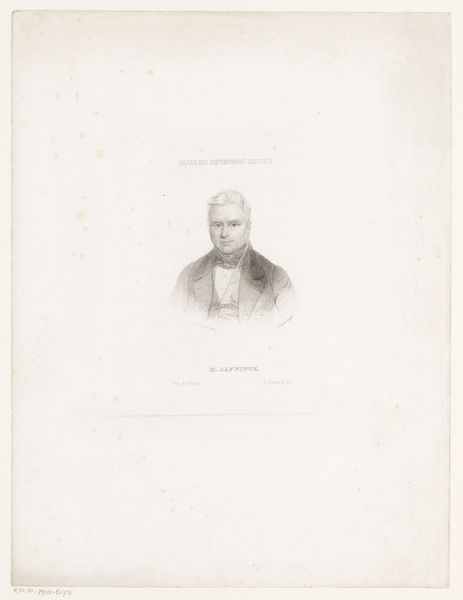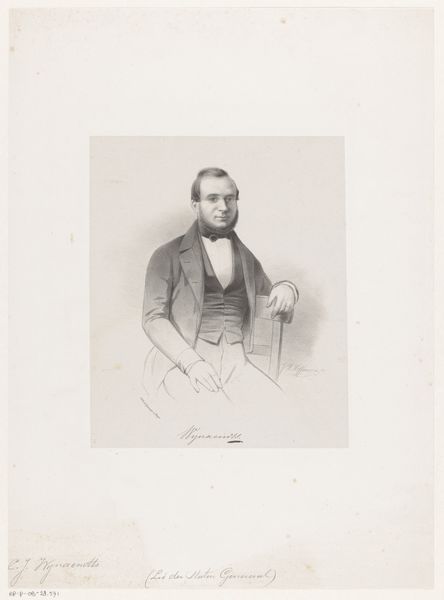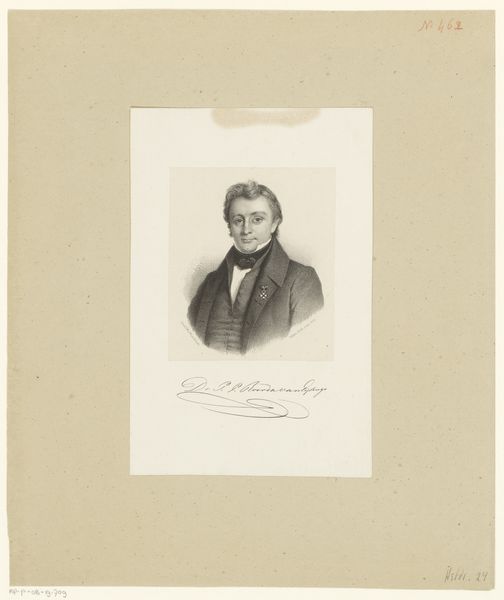
drawing, print, pencil, engraving
#
portrait
#
pencil drawn
#
drawing
# print
#
pencil sketch
#
old engraving style
#
figuration
#
pencil drawing
#
romanticism
#
pencil
#
engraving
Dimensions: height 598 mm, width 431 mm
Copyright: Rijks Museum: Open Domain
Curator: Immediately, one notices a certain somberness emanating from this portrait, wouldn't you agree? Editor: Indeed. Today, we're observing a piece entitled "Portret van Johann Heinrich Daniël Zschokke," dating from 1818-1871. It is the work of Friedrich Hasler, and primarily executed as a print. Curator: Note the exquisite detail Hasler achieves within a limited tonal range. The texture, rendered via what seems like precise linear strokes, grants the subject both dignity and depth. The composition draws your focus towards his unflinching gaze. Editor: It's fascinating to contextualize this gaze within the socio-political climate of the period. Zschokke, a German-born Swiss writer and reformer, was a figure who advocated for liberal ideals. One might perceive this seriousness as emblematic of his commitment. Curator: Perhaps. Or perhaps it merely reflects the stylistic conventions of portraiture during the Romantic period, focusing on presenting a sitter of importance with proper decorum. We should also consider the structural elements: the framing oval subtly concentrates our attention on the face. Editor: True, but considering Zschokke's significant influence on Swiss national identity, the very act of creating and distributing his portrait via print suggests an intent to solidify his image in the public consciousness. Notice, if you will, the small imagery along the base, which appears to feature a book—potentially alluding to his work. Curator: Good observation, editor. Nevertheless, the composition also creates an elegant interplay of light and shadow. It enhances the portrait’s verisimilitude, creating the subject’s facial topography from a fairly narrow collection of strokes and shades. Editor: It’s striking how art operates in service of constructing a narrative, isn't it? Beyond artistic merit, Hasler's portrait reveals so much about 19th-century aspirations and the mechanisms through which public figures cemented their influence. Curator: Absolutely. And from a formal standpoint, it presents a compelling case study in skillful reduction and targeted detail.
Comments
No comments
Be the first to comment and join the conversation on the ultimate creative platform.
